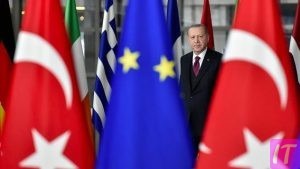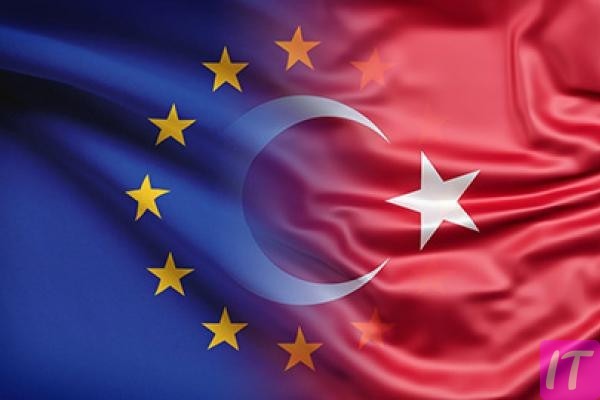Will Türkiye Become a Member of the European Union?
The question of whether Türkiye will become a member of the European Union (EU) is complex and multifaceted, involving historical contexts, economic implications, political reforms, and numerous other factors. With a process dating back decades, the path towards Türkiye’s EU membership has been turbulent and laden with challenges. This article aims to provide a comprehensive analysis of Türkiye’s journey towards EU accession, evaluating various key aspects that influence this protracted and contentious issue.
Türkiye’s Long Journey Towards EU Membership
Türkiye’s aspiration to join the European Union dates back to 1963 when it signed an association agreement with the European Economic Community (EEC), the predecessor of the EU. Over the years, various political, economic, and social factors have influenced its progress towards membership. Despite significant efforts, Türkiye’s accession process has faced numerous obstacles and delays.
One of the primary reasons for Türkiye’s prolonged journey towards EU membership has been the need for substantial political and economic reforms. As the EU sets stringent criteria for membership, Türkiye has faced difficulties in aligning with these standards, ranging from human rights issues to economic stability.
The EU has also expressed concerns over political instability in Türkiye, with multiple instances of military coups and political unrest. Such instability has raised questions about Türkiye’s readiness and suitability for EU membership.
EU-Türkiye relations have been further complicated by disagreements over issues such as Cyprus, minority rights, and freedom of expression. The ongoing conflict with Cyprus has particularly strained Türkiye-EU relations, as the EU has consistently supported the Greek Cypriot administration.
Despite these challenges, Türkiye has demonstrated a commitment to EU accession through various reforms and negotiations. Initiatives to harmonize its legal and economic systems with EU standards are ongoing, although progress has been sporadic and met with mixed reactions from both sides.
Economically, Türkiye has shown substantial growth and development over the past decades. However, persistent problems such as high inflation and unemployment rates, as well as concerns over economic governance, have hindered its progress towards EU standards.
Türkiye’s geopolitical significance, straddling both Europe and Asia, cannot be ignored. Its strategic location, coupled with its large population, makes it a crucial player in regional and international contexts, adding another layer of complexity to its EU accession process.
Public opinion in Türkiye regarding EU membership has fluctuated over the years. While there is a segment of the population that strongly supports EU membership for its potential economic and social benefits, others are wary of the extensive reforms and concessions required.
The role of international relations, particularly Turkey’s relationships with EU member states and other global powers, has also played a significant role in its EU accession journey. Diplomatic tensions and alliances have influenced the pace and direction of negotiations.
Overall, Türkiye’s journey towards EU membership has been marked by a series of advancements and setbacks. While the goal of EU accession remains a significant aspect of Türkiye’s foreign policy, the path forward is uncertain and fraught with challenges.
Historical Context: Türkiye and the European Union
The relationship between Türkiye and the European Union can be traced back to the Ankara Agreement of 1963, which aimed to pave the way for Türkiye’s eventual membership in the European Economic Community (EEC). This marked the beginning of a long and complicated association characterized by mutual interests and persistent challenges.
During the Cold War era, Türkiye’s strategic importance as a bridge between the East and West was a crucial factor in its relationship with the EEC. Its NATO membership further solidified its role as a key ally in the region, fostering closer economic and political ties with Western Europe.
In 1987, Türkiye formally applied for full EEC membership. However, political instability and economic challenges within Türkiye, coupled with the EU’s evolving standards for membership, led to delays and complications in the accession process.
The 1990s saw a renewed focus on EU-Türkiye relations, particularly with the signing of the Customs Union agreement in 1995. This agreement facilitated greater economic integration, although it did not resolve underlying political and social issues hindering full membership.
The European Council’s decision in 1999 to officially recognize Türkiye as a candidate for EU membership was a significant milestone. This recognition opened the door for formal accession negotiations, although substantial reforms in areas such as human rights and democratic governance were required.
Despite progress in some areas, Türkiye’s EU accession process faced considerable obstacles in the early 2000s. The EU’s Copenhagen Criteria, which outline the necessary political and economic standards for membership, posed significant challenges for Türkiye.
Historically, the Kurdish issue and human rights violations have been major points of contention between Türkiye and the EU. The EU has repeatedly called for improvements in minority rights and freedoms, while Türkiye has faced difficulties in addressing these issues comprehensively.
The political landscape in Türkiye has also impacted its EU accession journey. The rise of the Justice and Development Party (AKP) in 2002 brought initial optimism regarding reforms and EU integration, but subsequent political developments have led to strained relations.
The Cyprus conflict remains a significant historical and geopolitical hurdle in Türkiye’s EU accession. The division of Cyprus and Türkiye’s military intervention have led to long-standing tensions with Greece and the EU, complicating membership negotiations.
Additionally, EU enlargement fatigue and concerns over the integration capacity of the EU have influenced the union’s stance on Türkiye’s membership. These factors, combined with internal EU challenges, have contributed to a cautious approach towards further enlargement.
In sum, the historical context of Türkiye’s EU ambitions reveals a complex interplay of strategic interests, political dynamics, and socio-economic challenges. Understanding this history is crucial to comprehending the current state and future prospects of Türkiye’s EU accession.

Current State of EU-Türkiye Relations
The current state of EU-Türkiye relations is characterized by a mix of cooperation and contention. While both parties continue to engage in dialogue and collaboration on various fronts, significant disagreements and concerns persist, influencing the overall trajectory of their relationship.
One of the primary areas of cooperation is the Customs Union, which has facilitated substantial economic ties between Türkiye and the EU. Despite some calls for modernization and improvement, the Customs Union remains a cornerstone of economic relations.
Human rights and democratic governance are major areas of contention. The EU has repeatedly raised concerns over issues such as freedom of expression, judicial independence, and the treatment of political dissidents in Türkiye. These concerns have led to stalled negotiations and criticism.
Türkiye’s role in addressing the refugee crisis has also been a critical aspect of its relationship with the EU. The 2016 EU-Türkiye refugee deal aimed to manage migration flows, but implementation and ongoing humanitarian issues continue to pose challenges.
The geopolitical landscape, particularly Türkiye’s involvement in regional conflicts and its relationships with neighboring countries, significantly impacts EU-Türkiye relations. Actions in Syria, Libya, and the Eastern Mediterranean have often led to friction with the EU.
Economic performance and stability are crucial factors in the relationship. While Türkiye has achieved considerable growth, economic volatility, and governance issues have raised EU concerns about the sustainability and readiness of the Turkish economy for full membership.
Negotiations and accession talks have been influenced by both internal and external political dynamics. Changes in leadership and policy directions within the EU and Türkiye have periodically altered the pace and tone of discussions on membership.
Security and defense cooperation between Türkiye and the EU remains essential, especially in the context of counter-terrorism and regional stability. However, differences in policy approaches and priorities sometimes complicate this cooperation.
Public opinion in both Türkiye and EU member states plays a significant role in shaping relations. While there is support for closer ties, skepticism and opposition from various quarters influence political decisions and negotiation outcomes.
Institutional interactions and dialogues, such as the annual EU-Türkiye Association Council meetings, continue to provide platforms for addressing mutual concerns and exploring avenues for deeper cooperation.
The future of EU-Türkiye relations hinges on resolving key issues and aligning mutual interests. Continued engagement, dialogue, and efforts to address contentious issues are essential for improving relations and potentially advancing Türkiye’s EU membership aspirations.
Economic Implications of Türkiye Joining the EU
The potential economic implications of Türkiye joining the European Union are substantial, with both positive prospects and challenges to consider. Membership could bring significant economic benefits to both Türkiye and the EU, but it would also necessitate major adjustments and reforms.
On the positive side, EU membership would provide Türkiye with access to the single market, allowing for the free movement of goods, services, capital, and labor. This could lead to increased trade, investment, and economic growth for Türkiye.
The integration into the EU’s economic framework would likely attract foreign direct investment (FDI) to Türkiye, driven by improved market access, regulatory alignment, and a more stable economic environment. This influx of investment could boost various sectors and spur innovation and development.
EU membership would also facilitate the transfer of technology and knowledge, enhancing Türkiye’s industrial and technological capabilities. Participation in EU-funded research and development programs could further accelerate technological advancement and competitiveness.
Alignment with EU standards and regulations would necessitate significant reforms in Türkiye’s economic governance. While challenging, these reforms could lead to more transparent, efficient, and effective economic management, benefiting the overall economy.
On the other hand, the transition to meeting EU standards could impose considerable short-term costs on Türkiye. Structural adjustments, regulatory compliance, and reforms in industries such as agriculture and manufacturing might require substantial investment and adaptation.
The social and economic impact on Türkiye’s labor market would also need careful management. While increased labor mobility could create new opportunities, it might also lead to labor shortages in certain sectors and require measures to prevent social disruption.
For the EU, Türkiye’s membership could provide access to a large and growing market, boosting trade and economic ties. Türkiye’s strategic location and transportation infrastructure could enhance the EU’s connectivity and trade routes with Asia and the Middle East.
However, concerns about economic competition and the integration capacity of the EU must be addressed. The inclusion of Türkiye’s relatively lower-income economy could require measures to manage disparities and support economic convergence.
Additionally, Türkiye’s economic stability and governance are crucial factors. Issues such as high inflation, unemployment, and public debt need to be addressed to ensure sustainable economic integration with the EU.
Overall, the economic implications of Türkiye’s EU membership are multifaceted, with potential benefits and challenges. Realizing these benefits would require comprehensive reforms, strategic planning, and effective management of the integration process.
Political Reforms and Türkiye’s EU Candidacy
Political reforms are critical to Türkiye’s EU candidacy, as they address the fundamental criteria for membership, particularly concerning democratic governance, the rule of law, and human rights. Türkiye has undertaken numerous political reforms over the years, though the pace and effectiveness of these reforms have varied.
One of the central areas of reform is the judiciary. The EU has consistently emphasized the need for an independent and impartial judicial system. Reforms aimed at enhancing judicial independence, transparency, and efficiency are essential for aligning with EU standards.
Electoral reforms are also crucial for Türkiye’s EU candidacy. Ensuring free, fair, and transparent elections is fundamental to democratic governance. Reforms to enhance electoral processes, prevent fraud, and ensure equitable political representation are necessary.
Human rights and fundamental freedoms represent another key area for political reforms. The EU has urged Türkiye to improve the protection of human rights, including freedom of expression, assembly, and the press. Addressing these issues is vital for advancing EU membership.
Combating corruption is a significant aspect of political reforms. The EU requires rigorous anti-corruption measures to ensure transparency and integrity in governance. Strengthened anti-corruption frameworks and enforcement mechanisms are necessary for compliance.
Reforms in public administration are also important for Türkiye’s EU accession. Efficient, accountable, and transparent public administration systems are essential for effective governance and aligning with EU standards.
The protection of minority rights, including the rights of ethnic, religious, and other minority groups, is a critical area for reform. The EU has called on Türkiye to implement measures to safeguard these rights and promote social inclusion.
Reforming security and law enforcement agencies is another priority. Ensuring that these agencies operate in accordance with the rule of law, with respect for human rights, and under civilian oversight is essential for democratic governance.
Furthermore, enhancing civil society and citizen participation is crucial for democratic reforms. Strengthening the role of civil society organizations, allowing for greater public engagement, and ensuring protection for activists and advocates are important steps.
Political reforms must also address issues of decentralization and local governance. Empowering local governments, enhancing local autonomy, and improving local service delivery are necessary for effective governance and alignment with EU standards.
Finally, constitutional reforms play a vital role in Türkiye’s EU candidacy. Ensuring that the constitution upholds democratic principles, human rights, and the rule of law is crucial for meeting the EU’s political criteria.
Overall, comprehensive political reforms are essential for Türkiye’s EU candidacy. While significant progress has been made, continued efforts and commitment to these reforms are necessary to advance Türkiye’s EU membership prospects.
Human Rights Concerns in Türkiye’s EU Accession
Human rights are a cornerstone of the European Union’s values and a critical benchmark for any country aspiring to join the EU. Türkiye’s human rights record has been a significant point of contention in its EU accession process, with various issues and challenges needing to be addressed.
One of the primary human rights concerns is freedom of expression. The EU has consistently criticized Türkiye for restrictions on media freedom and the treatment of journalists. Reports of censorship, imprisonment, and harassment of media professionals have raised serious concerns.
Freedom of assembly and association is another critical area. The EU has highlighted the need for Türkiye to ensure that citizens can peacefully assemble and associate without fear of repression or violence from authorities.
The treatment of political dissidents and opposition figures has also drawn EU criticism. Reports of arbitrary arrests, detentions, and trials of political opponents underscore the need for reforms to ensure fair and impartial legal processes.
Minority rights represent a significant human rights challenge. The EU has called on Türkiye to improve protections for ethnic, religious, and cultural minorities, including Kurds, Armenians, and Christians, and to promote social inclusion and tolerance.
The issue of torture and ill-treatment in detention is a major concern. The EU has urged Türkiye to implement measures to prevent torture, ensure accountability for abuses, and provide redress for victims.
Women’s rights and gender equality are crucial areas for human rights improvements. The EU has advocated for stronger protections against gender-based violence, equal opportunities for women, and advancements in gender equality in all aspects of society.
Child rights and protections are also important. Ensuring that children are protected from exploitation, abuse, and neglect, and have access to quality education and healthcare, is fundamental to aligning with EU human rights standards.
The rights of refugees and asylum-seekers are a significant concern, particularly given Türkiye’s role in handling large numbers of refugees. The EU has emphasized the need for humane treatment, access to services, and adherence to international refugee protection standards.
Judicial independence and due process are critical for upholding human rights. The EU has stressed the importance of a fair and independent judiciary to protect individual rights and ensure justice.
Finally, labor rights and protections are vital human rights issues. The EU has called for better protections for workers, including safe working conditions, fair wages, and the right to unionize.
Addressing human rights concerns is essential for Türkiye’s EU accession. Comprehensive reforms, adherence to international human rights standards, and active engagement with civil society are necessary to advance Türkiye’s EU membership ambitions.

The Role of Geopolitics in EU-Türkiye Membership Talks
Geopolitics plays a significant role in EU-Türkiye membership talks, influencing decisions and negotiations in ways that extend beyond economic and political criteria. Türkiye’s strategic location at the crossroads of Europe and Asia, its role in regional conflicts, and its relationships with neighboring countries and global powers are crucial factors.
Türkiye’s geographical position makes it a key player in regional security and stability. Its proximity to conflict zones such as Syria, Iraq, and the Caucasus impacts its interactions with the EU, especially regarding migration, counter-terrorism, and regional diplomacy.
The EU-Türkiye relationship is also shaped by energy geopolitics. Türkiye’s location as a transit country for energy supplies from the Middle East, Central Asia, and Russia to Europe highlights its strategic importance for the EU’s energy security.
Türkiye’s involvement in the Syrian conflict has significant geopolitical implications. The EU has been concerned about the humanitarian crisis, refugee flows, and Türkiye’s military operations in northern Syria. These factors complicate membership talks and regional dynamics.
The Eastern Mediterranean tensions, particularly Türkiye’s maritime disputes with Greece and Cyprus, have a direct impact on EU-Türkiye relations. The EU’s support for its member states, Greece and Cyprus, and calls for dialogue and legal resolution reflect the geopolitical complexities involved.
Türkiye’s relationship with Russia is another geopolitical consideration. Balancing its ties with Russia and its aspirations for EU membership requires diplomatic maneuvering, especially given the differing stances of the EU and Russia on various issues.
The role of NATO and defense cooperation is critical. As a NATO member, Türkiye’s security alignment with Western allies is essential, but differences in defense policies and procurement, including Türkiye’s acquisition of the Russian S-400 missile system, create tensions.
Türkiye’s ties with Middle Eastern countries and its influence in the region also affect EU-Türkiye membership talks. Its relationships with nations such as Iran, Saudi Arabia, and Israel, as well as its role in regional alliances, shape its geopolitical landscape and engagement with the EU.
Migration and border security are significant geopolitical issues. Türkiye’s role in managing migration flows to the EU, particularly under the 2016 EU-Türkiye refugee deal, underscores its importance in addressing shared challenges but also highlights areas of contention.
The EU’s internal geopolitical dynamics, including the varying positions of member states on Türkiye’s accession, reflect differing strategic, economic, and security interests within the union. These internal divergences impact the consensus on Türkiye’s membership.
Finally, Türkiye’s broader global positioning and ambitions influence its EU membership talks. Its active foreign policy, aspirations for regional leadership, and engagement with global institutions are critical factors in how it navigates its relationship with the EU.
In conclusion, geopolitics is a vital element in EU-Türkiye membership talks. Understanding and addressing the geopolitical dimensions, alongside political and economic criteria, is essential for advancing Türkiye’s EU accession process.
Public Opinion in Türkiye About EU Membership
Public opinion in Türkiye about EU membership is varied and has fluctuated over time, reflecting changes in political, economic, and social contexts. Understanding public sentiment is crucial for assessing the prospects of Türkiye’s EU accession and navigating the associated challenges.
Historically, there has been significant support for EU membership among the Turkish population. Many citizens have viewed EU accession as a pathway to economic prosperity, improved governance, and enhanced democratic standards.
Economic opportunities are a key driver of public support for EU membership. The potential for increased trade, investment, job creation, and economic stability aligns with the aspirations of many Turkish citizens for better economic prospects and living standards.
However, skepticism and opposition also exist within the public sphere. Concerns about losing national sovereignty, cultural identity, and control over domestic policies are significant factors influencing negative perceptions of EU membership.
Political developments and reforms have impacted public opinion. Periods of political stability and progress towards EU accession have generally seen higher public support, while setbacks, political unrest, and criticisms from the EU have often led to decreased enthusiasm.
The EU’s stance on Türkiye’s membership and the perception of being unfairly treated or facing double standards have also influenced public sentiment. Perceived reluctance or hostility from certain EU member states can fuel nationalist sentiments and opposition to EU membership.
Human rights issues, including the EU’s criticisms of Türkiye’s record and the EU’s own challenges, such as handling migration and minority rights, contribute to the complexity of public opinion. Some view EU standards as important, while others see them as external interference.
The role of the media and public discourse significantly shapes public opinion. Media portrayals of the EU, membership negotiations, and related issues play a crucial role in informing and influencing public perceptions and attitudes.
Generational differences also affect public opinion. Younger generations, who are more connected to global trends







